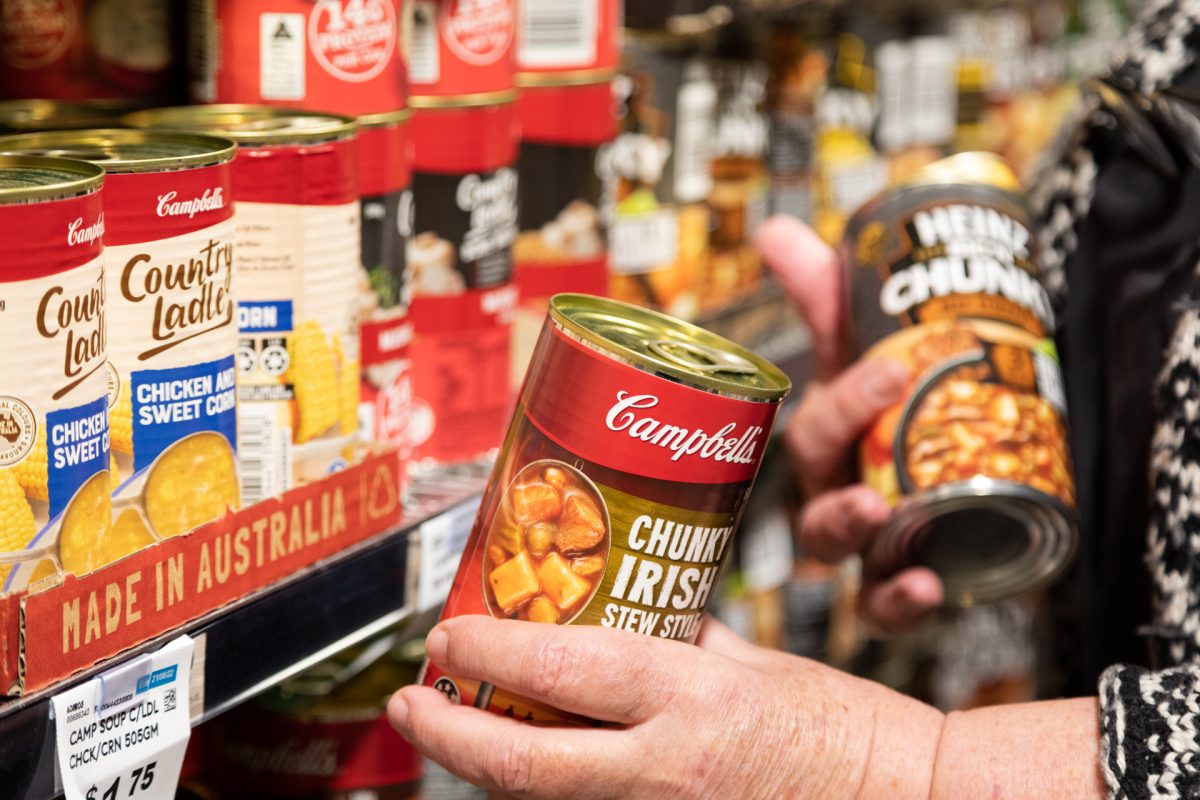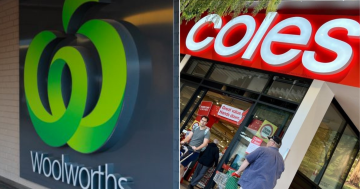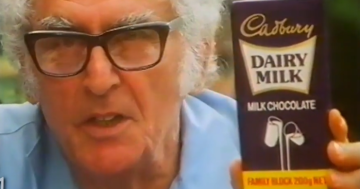
The ACTU-commissioned price gouging inquiry has delivered its report. Photo: Michelle Kroll.
Consumer watchdog guru Allan Fels has officially told us what we already knew – that corporate greed is driving up inflation in Australia.
The former chair of the Australian Competition and Consumer Commission has delivered his report into price gouging and unfair pricing practices, which found supermarkets, banks, energy providers and airlines are hurting Australian consumers by exploiting their market power.
Professor Fels chaired an inquiry launched last August, conducting public hearings in Canberra, Sydney, Melbourne, Adelaide and Cairns. He received over 750 submissions and 20 detailed contributions from academics, think tanks, unions and businesses.
The report claims ‘profit pushing’ and price gouging, particularly in the wake of the COVID pandemic, were major contributing factors to the hardships many Australians are facing.
Nearly half of the public submissions to the inquiry were about supermarket prices.
“Neither Coles nor Woolworths experienced declines in profit nor revenue over the pandemic as their main businesses were, rightfully, deemed essential services,” Professor Fels says in his report.
“This position allowed business continuity and retained their position in the market.
“What has occurred since the pandemic, though, is an increase in margins in both Coles and Woolworths food and grocery segments driven by low competitive forces and an ability to not pass on immediate cost reductions.”
The inquiry was commissioned by the Australian Council of Trade Unions. Professor Fels delivered his report to ACTU secretary Sally McManus at Parliament House this week.
Ms McManus, who has passed the report onto the Federal Government, said working people had suspected that some big businesses have added to inflation by having too much power over customers, workers and supply chains.
“This needs to be reined in,” she said.
“The gaming of the system in the wholesale energy market is particularly concerning. Generation makes up 30 per cent of our household bills and Fels asserts there is gouging in the system, causing workers to pay too much.
“Action here could have an immediate effect on our cost of living.
“The Inquiry itself already had a significant impact by shining a light on pricing practices that rip off ordinary people, such as those used by supermarkets.
“We are glad the inquiry’s findings and process played a part in the Treasurer’s recent referral of the supermarkets to the ACCC.
“We thank Professor Fels for his deep and considered look at pricing in our economy and we look forward to considering his findings in detail.”
Professor Fels said the power of corporations to unduly lift prices had been a central factor in the recent cost-of-living crisis affecting so many Australian households.
He noted companies have been able to leverage the disruptions and uncertainty that followed the COVID pandemic into unprecedented profitability.
“The ability of companies to charge unfair prices, amidst the unprecedented economic and social dislocation ensuing from the COVID pandemic, has significantly undermined the well-being of the Australians we heard from,” he said.
“Adding insult to injury, numerous individual allegations of price-gouging received by our inquiry dealt with unfair behaviour by large commercial banks, which have used their market dominance to extract even more profit from customers through higher interest costs and other charges.
Professor Fels pointed to a “gap in government policy” to address rising prices due to corporate greed.
“It does not pay sufficient attention to high prices. It needs to,” he said of the Federal Government.
“It needs to investigate and expose their causes and, as far as possible, remedy the problems – ineffective competition, vulnerable consumers and exploitative business pricing practices.”
The report found many businesses to be resorting to bizarrely named dodgy pricing practices such as loyalty taxes, drip pricing, excuse inflation, rockets and feathers strategies, and confusion pricing.
Professor Fels also found many sectors were insufficiently competitive or insufficiently regulated, leading to poor consumer outcomes and higher prices.
His report makes 35 key recommendations relating to prices, mergers and divestiture, and competition policy, with 20 recommendations related to issues in specific industries.
The Australia Institute, which made a major submission to the Fels inquiry and appeared before its public hearing in Melbourne last year, said the review confirms that price-setting strategies by corporations have contributed significantly to the cost-of-living crisis afflicting Australian households.
“Since the current inflationary cycle began after COVID lockdowns, there has been too much attention on wages, labour costs, and consumer spending as the supposed drivers of higher prices,” the institute’s chief economist Greg Jericho said.
“This inquiry marshals abundant evidence from official statistical agencies, international economic organisations, think tanks and academic research to show that corporations have taken advantage of the pandemic and its aftermath to exploit consumers and drive up inflation.”
Original Article published by Chris Johnson on Riotact.











